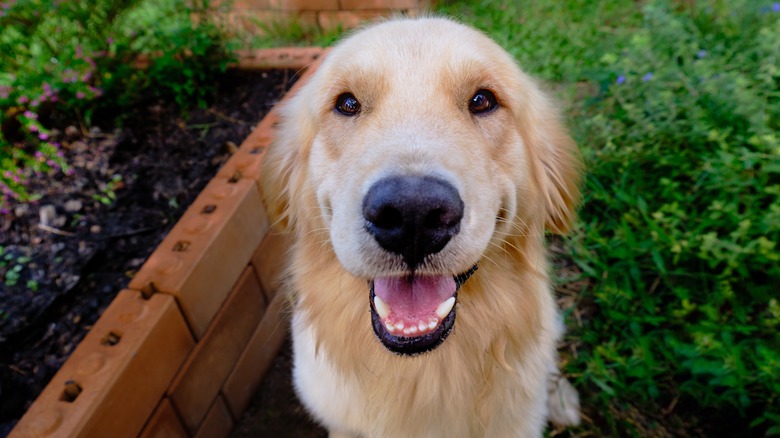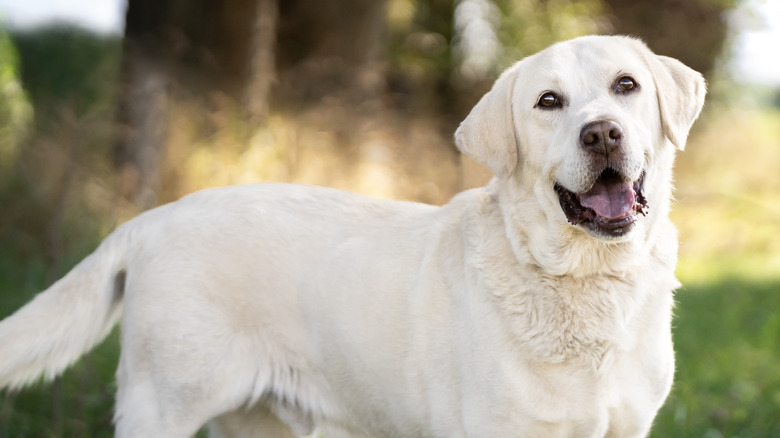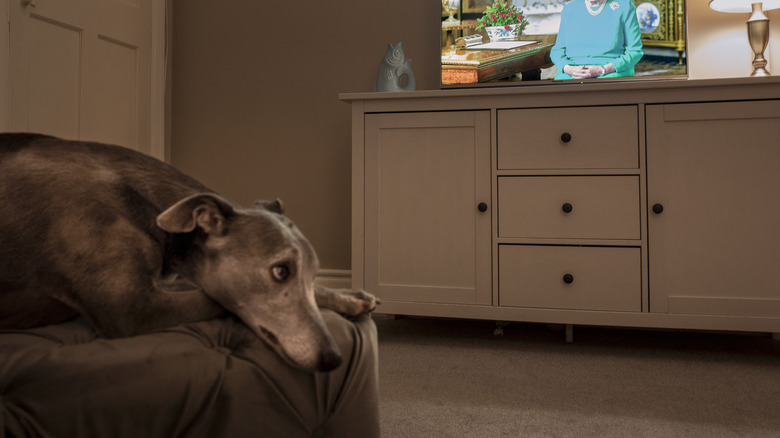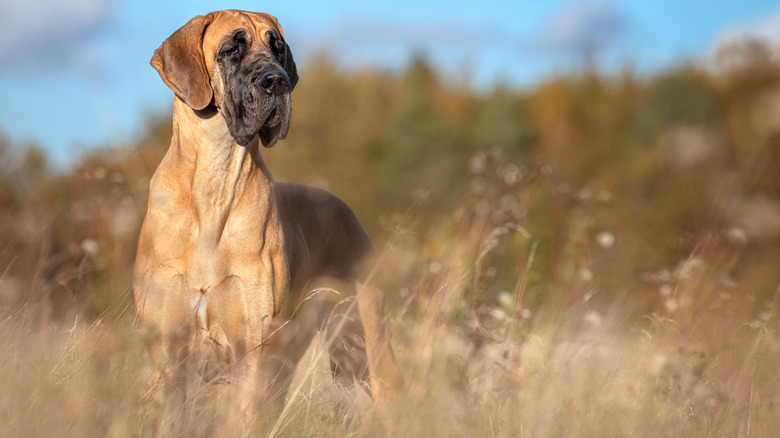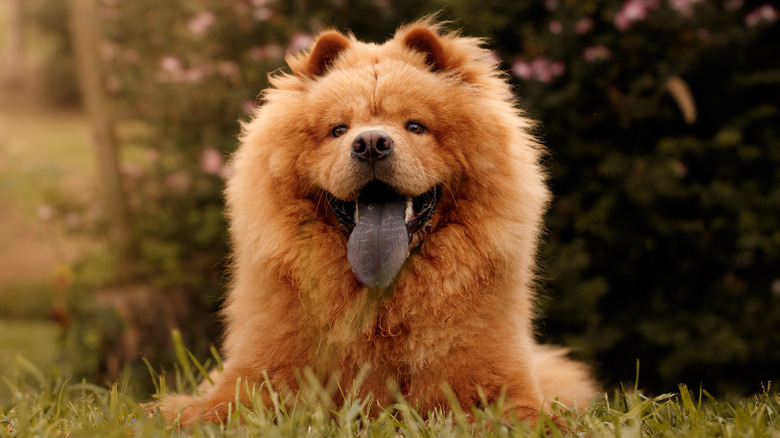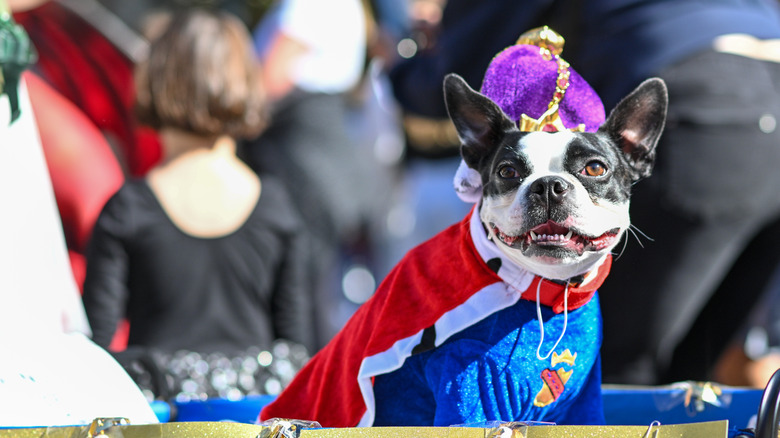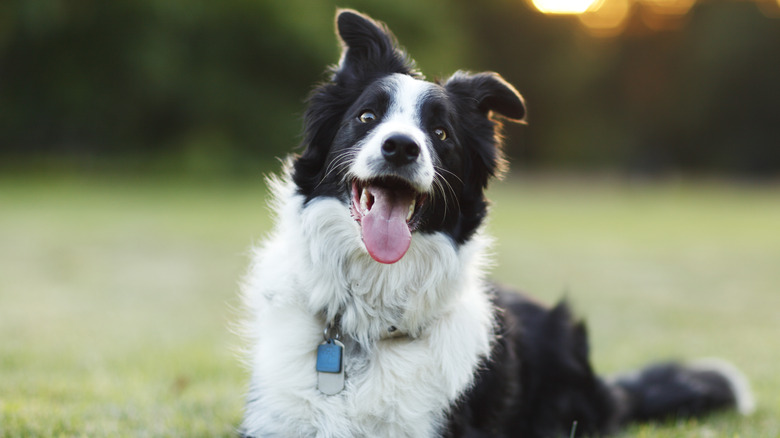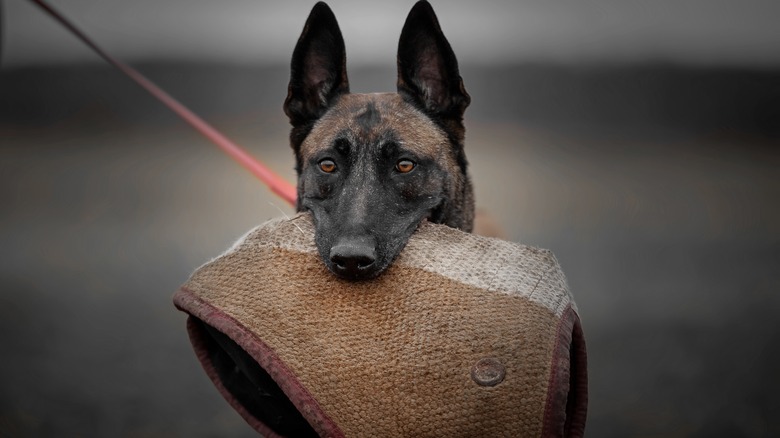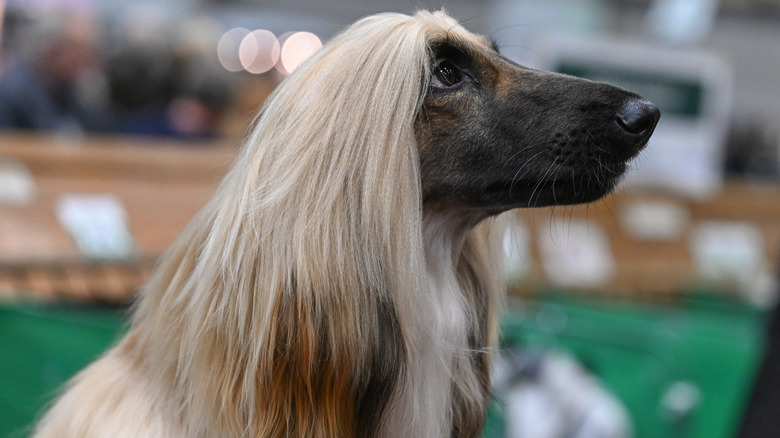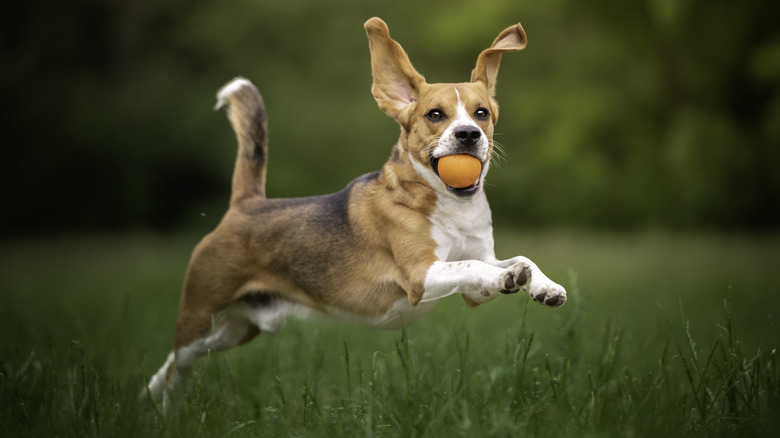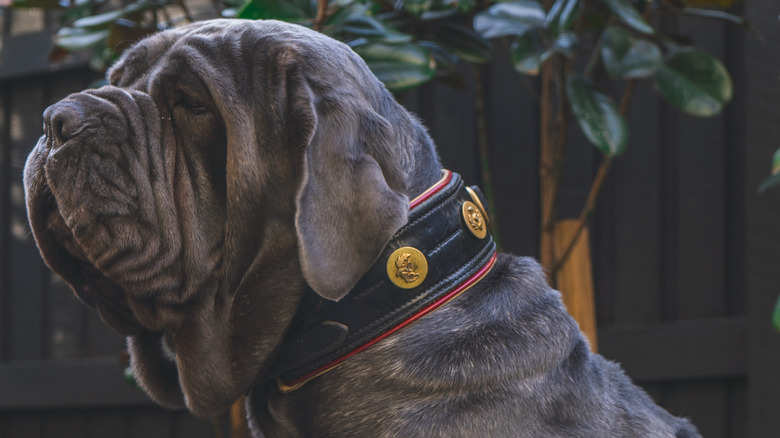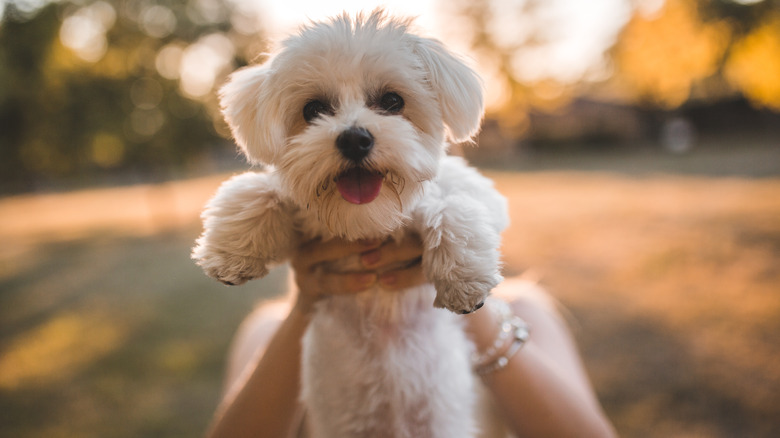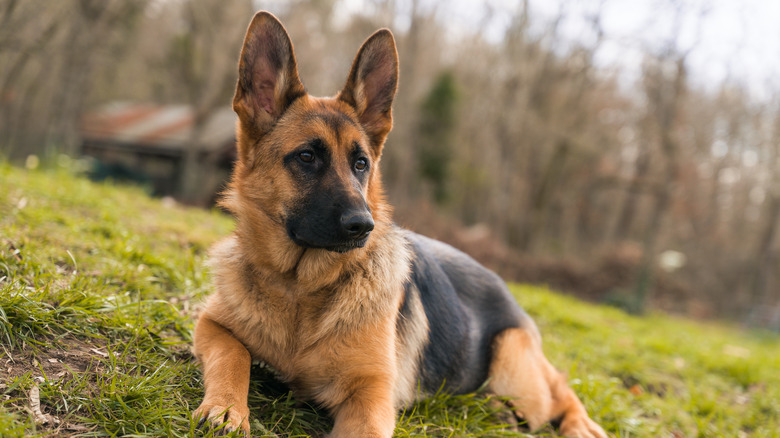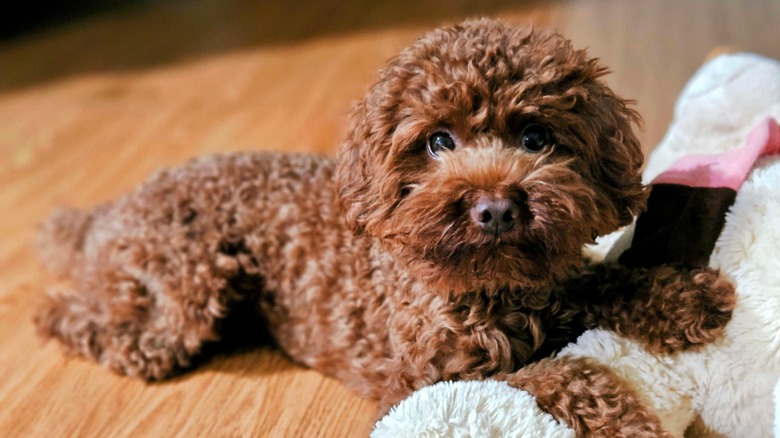The Dog Breed You Should Get, Based On Your Personality Type
The road to finding your new furry friend isn't easy. Not only is there the question of whether to adopt from a rescue or purchase from a breeder, but there's also the issue of determining which breed best suits your lifestyle, expectations, and budget. If only the decision could be based on looks alone!
Ultimately, choosing the ideal breed starts with some self-reflection. For instance, do you enjoy going to tailgates and spending weekends socializing? In that case, you could enjoy bringing home a boxer. These goofy dogs are always up for a good time – and whenever you're excited, they'll be, too. Are you more bookish, spending your weekends curled up indoors? You should consider getting a sighthound; these cat-like dogs will share your love of lounging.
Whichever breed you pick, remember: getting a dog is a serious responsibility. The process is less about understanding dog breeds; it's more about understanding yourself!
People person? Go golden retriever
There's a reason why golden retrievers are consistently ranked among the most popular American dog breeds: they're naturally extroverted. Every stranger is a possible friend! The American Kennel Club (AKC) describes these large dogs as "intelligent, friendly, and devoted." These characteristics are what make golden retrievers popular choices as service animals and therapy dogs. They're extremely affectionate with family members, highly biddable, and remarkably smart.
If you consider yourself a social butterfly, the golden retriever could make an excellent companion. On walks, expect your dog to say hello to neighbors and passerby with a friendly tail wag or eager doe-eyed gaze. At home, you'll have your own personal greeter, meeting friends and family members at the door with unbridled enthusiasm. In the eyes of many, golden retrievers are too pure for this world.
You can get the most out of your relationship with a golden retriever by engaging in dog-specific sporting events, such as dock-diving and competitive obedience. These pups thrive on building and maintaining strong bonds with their owners, and sports are a great way to connect!
Labrador retrievers suit outdoor enthusiasts
Labrador retrievers are ideal companions for lovers of the great outdoors. These dogs were bred in the early 1800s with the sole purpose of creating a canine that could retrieve game from both land and water. As a result, they have boundless energy that comes with a love of getting down and dirty. A Labrador retriever covered in mud after swimming in a pond or lake is a happy dog.
Because of their down-for-anything attitude and endless eagerness to please, Labrador retrievers have a reputation for being "dumb dogs". But make no mistake; the Labrador retriever is one of the smartest dog breeds in the world. Don't let their empty-headed eyes fool you! They're masters at counter-surfing and causing all sorts of mischief when left to their own devices.
Whether on nature trails, camping expeditions, or long road trips, the Labrador retriever makes a faithful adventure buddy. You'll find yourself laughing and shaking your head at the antics of these loveable goofballs.
Whippets are for contemplative owners
When many people hear the term "sighthound", they immediately imagine the large greyhound, known for its narrow snout and swiftness. However, there's a medium-sized sighthound that commonly gets overlooked. Meet the whippet, a bony, fragile-framed dog often compared to the similar-looking Italian greyhound. They're ideal for people who fall in the middle area between cat-lovers and dog-lovers. Playful, affectionate, and calm, there's a reason why people who describe themselves as "low key" fall in love with these dogs.
Although whippets are renowned for their speed, they're content to snooze most of the day while you read a book or watch your favorite YouTube series (though they still need at least an hour of exercise according to The People's Dispensary for Sick Animal). They offer unintrusive companionship, following you silently from room to room. If you love snuggling in your cozy apartment while rain taps on your window, your whippet will happily contemplate life's many ebbs and flows at your side. Their nimble physique, combined with how rarely they bark, will make you feel like you have a four-legged shadow instead of a dog.
Great Danes make great companions for homebodies
It's a popular misconception that the bigger the dog, the more exercise it needs. For the great Dane, this could not be farther from the truth. These gentle giants enjoy snoozing sprawled out on the couch after a brisk afternoon walk. While these dogs are certainly intimidating, standing 32 inches at the shoulder and weighing upward of 175 pounds, they're rarely aggressive and patient with small children. Some even describe their great Danes as friendly to a fault!
Great Danes are perfect for owners who enjoy spending time at home with short bursts of non-strenuous physical activity. Like all dogs, great Danes are fairly energetic as puppies. Yet, once they hit the two-year mark, they settle down considerably, sometimes sleeping for 14 hours a day! Friendly, patient, and dependable, these dogs are suitable for both single-person households and families.
Note: While great Danes are affable by nature, early socialization is key to ensuring these dogs mature into well-mannered adults. This largely involves using positive reinforcement training methods to associate desired behaviors with rewards, such as verbal praise of treats. A great Dane without proper training will be a nightmare to walk on a leash. They may also become suspicious of strangers, leading to anxiety, reactivity, and other undesirable behaviors.
Chow chows are suited for loyal protectors
There are few dogs as unchanged by time as the loyal chow chow. This ancient breed has roots stemming back from ancient China, where they were bred as protectors of royalty. Today, even in modern suburbia, they take their guarding duties seriously. Forget rottweilers, German shepherds, and other watch dogs; the poofy chow chow often comes out on top in the protective department.
While on walks, you'll have a stocky bodyguard on the other end of the leash, keeping a keen eye for strangers and watching for signs of trouble. At home, a chow chow's work is never done; they'll spend hours patrolling the perimeter and barking to alert you to someone's presence, whether that's a trusted family friend or Amazon delivery driver.
Chow chows offer a two-for-one deal; they're loyal guardians that look like scaled-up pomeranians. Their double coat is plush to the touch, and they feel like giant stuffed animals when they allow cuddling sessions. They also sport a distinctive feature: Chow chows are known for their bluish-purple tongues, a relic from their breeding lines from thousands of years ago. If you're looking for a bouncer and buddy all in one, these serious dogs could meet your expectations!
Boston terriers want a partner in mischief
The Boston terrier is a jokester in a dog suit. Really though. They're affectionately called "the American Gentleman" because their black-and-white patterning looks like a tuxedo. But make no mistake, behind their sleek fur, there's a mischievous devil waiting to pull its next prank. Hey, there's a reason why the AKC describes these little bulldogs as "amusing"!
While similar in appearance, Boston terriers have many stark differences from the ever-popular French bulldog. For starters, Boston terriers are an undeniably high-energy breed, requiring about an hour of daily exercise to avoid behavioral problems arising from boredom, per Dogster. They're also more vocal, but not enough to make it unideal for apartment living. Further, Boston terriers have a jaunty, high-step gait, adding another dimension to their inherent comic nature. If you're looking for a partner in mischief to fool around with friends or pull good hearted practical jokes, the Boston terrier could make an eager sidekick.
Border collies are an overachiever's dream
Are you a go-getter? Do you wake up in the morning with a passion to succeed and be the best? Then you want a border collie. These dogs are consistently ranked as one of the most intelligent breeds for their ability to learn complex commands with little reinforcement. The herding dogs are showstoppers in the world of canine sports, routinely taking first place ribbons for agility, dock diving, and the quickly-growing Fast CAT. They're even popular in the world of dog dancing!
Ever alert, these dogs are also highly attuned to their owners' feelings and emotions, which is why many lifelong lovers of border collies describe them as "heart dogs". When you're happy, they'll feed on your energy and keep you entertained with their sharp wit and high biddability. When you're feeling down, you can expect a furry shoulder to cry on.
Border collies thrive with high-energy pet parents who have a rotating stock of puzzle toys and games that challenge their intellect. They can also be good with other dogs and older children, and while they're often too high-strung for apartment living, they're fairly adaptable to new situations.
Belgian Malinois are great for taskmasters
Belgian Malinois are called "Maligators" for a reason! This affectionate term combines "Malinois" with "alligator", a commentary on this breed's frequent employment as police dogs. These canines are known for their tenacity and incredible drive, which is why they're commonly used in K9 units. They need heavily structured environments centered around strong boundaries, routine, and an established reward system.
So, why would you get one of these large dogs? In short, they're great for taskmasters. If you enjoy training your dog and watching them respond to your commands, you could find great fulfillment with this breed. Belgian Malinois are one of the most intelligent breeds, learning complex commands in minutes. With proper socialization and consistent training, you'll have a steadfast companion that sees you as "top dog".
Note that while Belgian Malinois are a fairly popular dog breed (ranking 33rd out of the AKC's 200 registered breeds in 2023), they're not suited for everyone. There's no such thing as "taking a day off" from owning one of these goal-oriented dogs. If you happen to sleep through your alarm one morning, trust that your Belgian Malinois will keep you on schedule.
Afghan hounds suit admirers of beauty
How would you like a Parisian fashion model living in your house? The Afghan hound is a beautiful breed that knows just how alluring they are. They have a narrow snout framed by long, silky hair. The iconic tucked-in stomach unique to sighthounds is hidden under plush fur that requires daily brushing to maintain this aristocrat's coat. Personality-wise, the Afghan is a dog of refinement – aloof, independent, and often seen walking off in a huff.
Afghan hounds are perfectly suited for admirers of classic art and the latest fashions. In the eyes of many, this breed is more of a display piece than a panting, grinning four-legged companion. They don't crave attention, and while they can coexist with other dogs, they likely won't engage. They are truly a cat-like breed.
The Afghan hound may be renowned for its beauty, but unfortunately is lacking a bit in the brains department. In the book "The Intelligence of Dogs," Dr. Stanley Coren listed Afghan hounds as one of the least intelligent dog breeds. They're not "stupid" in any sense of the word, but they have low biddability. They tend to see commands as requests. Whereas a border collie could pick up a complex sequence of tricks in minutes, an Afghan hound may hardly deign to learn "sit".
Beagles are ideal for family-focused individuals
Beagles are a highly versatile breed for many reasons. They're adaptable, respond well to consistent training, and generally love socializing with other canines. But one of their biggest draws is that above all else, beagles are amazing family dogs. These medium-sized pups don't view themselves as animals; they consider themselves as part of the household! Bringing home one of these cuties is much like bringing home a small child.
A beagle will feel right at home in a busy household teeming with both kids and teenagers. Described as "merry" by the AKC, beagles will follow family members from room to room, not hesitating to engage in good-natured antics. After a brief adjustment and careful introduction period, beagles can even get along well with newborns. Just remember to ease into direct interactions and never leave a dog with a baby unsupervised.
Beagles are a very vocal breed; they have a distinctive, open-throated bark called "baying". While a beagle would likely be too good-natured to fight off an intruder, it would have no problem alerting you to a stranger's presence!
Neapolitan mastiffs are great for loners
The wrinkly shar-pei has nothing on the drooping jowls of a Neapolitan mastiff. Initially bred as war dogs for the Roman army, these giant canines have a fearsome, intimidating visage that tells strangers, "Back off." But make no mistake: Underneath that loose skin and ropes of drool, Neapolitan mastiffs are misunderstood.
Described as "sweet, placid, and steady with loved ones" by the AKC, Neapolitan mastiffs are ideal for owners who don't want to engage with strangers, interact with other dogs, or pay for a security system. These pups can weigh as much as 150 pounds and stand up to 31 inches at the withers, sporting rippling muscles underneath a short coat. They're stocky, fiercely protective, and fearless in the face of danger (even if it's the pizza guy). Still, they're rarely aggressive and would much rather prefer de-escalation to heated conflicts.
You might love having a Neapolitan mastiff if you want an invisible force field around you at all times. Say goodbye to solicitors, sketchy people downtown, or pedestrians who follow too closely. Your mastiff will ensure your safety on looks alone.
Maltese make ideal choices for loving caregivers
There are only a handful of breeds that the AKC describes as "charming"; one of those is the Maltese, a long-haired white dog known for its playful nature. While other canines prefer to be equals with their owners, the Maltese wants nothing more than to be pampered and loved. A Maltese is content riding around in a doggy stroller, wearing an outfit to keep its fine locks safe from wind and rain. If your heart swells when swaddling a baby or playing with a giggling toddler, you could find years of joy by welcoming a Maltese into your home.
Maltese are a high-maintenance breed, requiring daily grooming sessions to keep their hair in tip-top shape. Some owners suggest keeping cornstarch on hand to maintain these long-haired dogs' coats. But for many pet parents, this is part of the joy of having these small canines. For you, there may be nothing more relaxing than combing a Maltese and feeling your bond strengthen. Maltese are Velcro dogs, a term that describes a pup that is constantly at its owner's side. Your Maltese will likely follow you from room to room, supervising your activities and reveling in being included in your daily chores.
German shepherds enjoy regimented, goal-oriented owners
German shepherds are often compared to Belgian Malinois, a similar working breed that also works alongside policemen and military personnel. However, there's a stark difference between these two dogs: whereas Belgian Malinois need regimented structure and firm boundaries, German shepherds provide a bit more flexibility, all while still offering the benefits of a high-energy, intelligent dog. Belgian Malinois are for experienced dog owners looking for a challenge; German shepherds are more adaptable and good family dogs once properly socialized. A fearful, uncertain German shepherd could bite unexpectedly!
German shepherds are loyal, steadfast companions who will lay their lives on the line to protect their families. Yet, they're aloof with strangers, boasting an independent personality that doesn't lend itself to immediate friendships. For this reason, not only do they make excellent athletes and dedicated working dogs, but they're also popular guard dogs. A wise intruder would turn tail at the mere sight of these sleek, muscular canines.
If you enjoy a moderately active lifestyle with a consistent routine, the German Shepherd could make a loyal companion and security guard. You'll marvel at how easily these dogs master simple commands and master your daily pattern, from when you wake up to how often you use the restroom.
Poodles: a versatile breed for many personality types
There isn't a one-size-fits-all dog breed for every personality type, but there's one that comes pretty close: the poodle. Often touted as a "hypoallergenic," these pups come in three sizes – toy, miniature, and standard, from smallest to largest — suited for different lifestyles, living situations, and expectations.
Toy poodles are ideal for owners who want a small companion to lounge in their lap. Miniature poodles offer a similar benefit in that they bond closely with their owners and enjoy indoor playtime. Matters change if you're considering a standard poodle. These are fairly large, high-energy dogs that need steady stimulation to truly thrive. This can come in the form of puzzle toys, long walks, and even breed-specific sports, such as water retrieving and dock diving.
Providing even more variety, poodles are commonly bred with other dogs to create multiples types of "doodle" mixes. These hybrids intend to capture the best qualities of both parents. For example, goldendoodles (poodles mixed with golden retrievers) are known for being loving family dogs that seldom shed. Bernedoodles (Bernese mountain dogs mixed with poodles) are known for being on the athletic side, offering a more interactive experience for active households. There's something for everybody when it comes to this highly adaptable, ever-popular breed.

